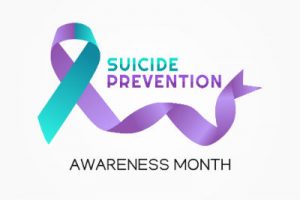
More than eight in 10 Americans think policymakers need to make suicide prevention a national priority, and a majority report being more open to talking about mental health as a result of the public health response to COVID-19.
This from a new Harris Poll conducted on behalf of the National Action Alliance for Suicide Prevention, the American Foundation for Suicide Prevention, the Suicide Prevention Resource Center and Education Development Center.
The survey shows respondents overwhelmingly believe suicide can be prevented (93 percent), and 95 percent say they would do something if someone close to them was thinking about suicide.
On the flip side, 69 percent identified that keep them from discussing suicide with others, such as not knowing what to say (31 percent), feeling they don’t have enough knowledge (28 percent), or not feeling comfortable with the topic (19 percent).
The findings underscore the importance of equipping Americans with the necessary tools and resources to feel empowered to have conversations about mental health and suicide prevention, and to take steps to care for their own mental health.
“These new findings indicate that the American people are ready for the nation to take action now to mitigate the short-term, and prevent any long-term, negative mental health or suicide-related consequences of the pandemic,” said Colleen Carr, director of the Action Alliance. “These complex and urgent public health issues require multi-sector perspectives and solutions.”
“Our new survey data indicate Americans are ready and willing to have open conversations about mental health, and they are feeling more empathic,” said Dr. Christine Moutier, AFSP’s chief medical officer. “Likely through the COVID-19 pandemic, people are growing stronger in their understanding of mental health and are more supportive of each other. The next step we must take is to make sure that when they try to access mental health care, they are able to find effective, culturally competent, affordable care.”
“Our country has never witnessed a public health and economic event of this proportion in recent history. The pandemic continues to take a toll on many people’s health and well-being,” said Dr. Jerry Reed, senior vice president for practice leadership at EDC. “Yet, with challenges come opportunities. This data shows us that Americans see these issues as critically important and that they want to play a role in addressing them. We must take bold steps now to support those who are struggling and to emerge a stronger country.”
To change the public conversation about these issues and empower Americans with action steps they can take to support others, as well as to strengthen mental health and suicide prevention, the Action Alliance recently launched the Mental Health & Suicide Prevention National Response to COVID-19.
Working with public and private sector partners like AFSP, SPRC and EDC, the Action Alliance’s National Response is committed to creating lasting cultural, systems, and policy changes that ensure equitable access to the care, support, and services—both in and outside of clinical settings.
This as AFSP’s Project 2025 continues to work to reduce the rate of suicide 20 percent by 2025 by focusing on four specific areas: primary care settings, emergency departments, the gun owning community and correction systems.
How you can help
Some helpful ways people can be there for someone who may be struggling or in crisis include:
- Recognizing the risk factors and warning signs
- Learning the action steps for talking with someone who might be suicidal
- Staying socially connected to family, friends, and loved ones
- Sharing the National Suicide Prevention Lifeline number (1-800-273-TALK), which provides 24/7, free, and confidential support or the Crisis Text Line (text TALK to 741741).
More from the polling data
While most Americans (78 percent) view mental and physical health as being equally important, 51 percent said physical health is treated as more important than mental health in our current health care system.
Most Americans (73 percent) said they are more aware of the importance of taking care of their own mental health during the pandemic, with many relying on positive coping mechanisms.
If they were having thoughts of suicide, most Americans (73 percent) would tell someone, and people select different sources of support including:
- Mental health provider (34 percent)
- Family member (33 percent)
- Spouse/significant other (32 percent)
- Friend (30 percent)
- Primary care doctor (25 percent)
- Hotline/Crisis line (21 percent)
- Clergy/Faith leader (14 percent)
- Social media network (7 percent)
- Coworker (5 percent)
Top sources for where Americans go to find resources/tips about coping with suicide — for themselves or a loved one — include:
- mental health providers (50 percent)
- doctors or primary care health professionals (43 percent)
- hotline/crisis lines (41 percent)
- internet searches (35 percent)
Technology plays an important role in Americans accessing mental health care:
- 25 percent have worked with their mental health professional through telehealth
- 20 percent have used mental health apps
- 19 percent have engaged with another provider through telehealth










